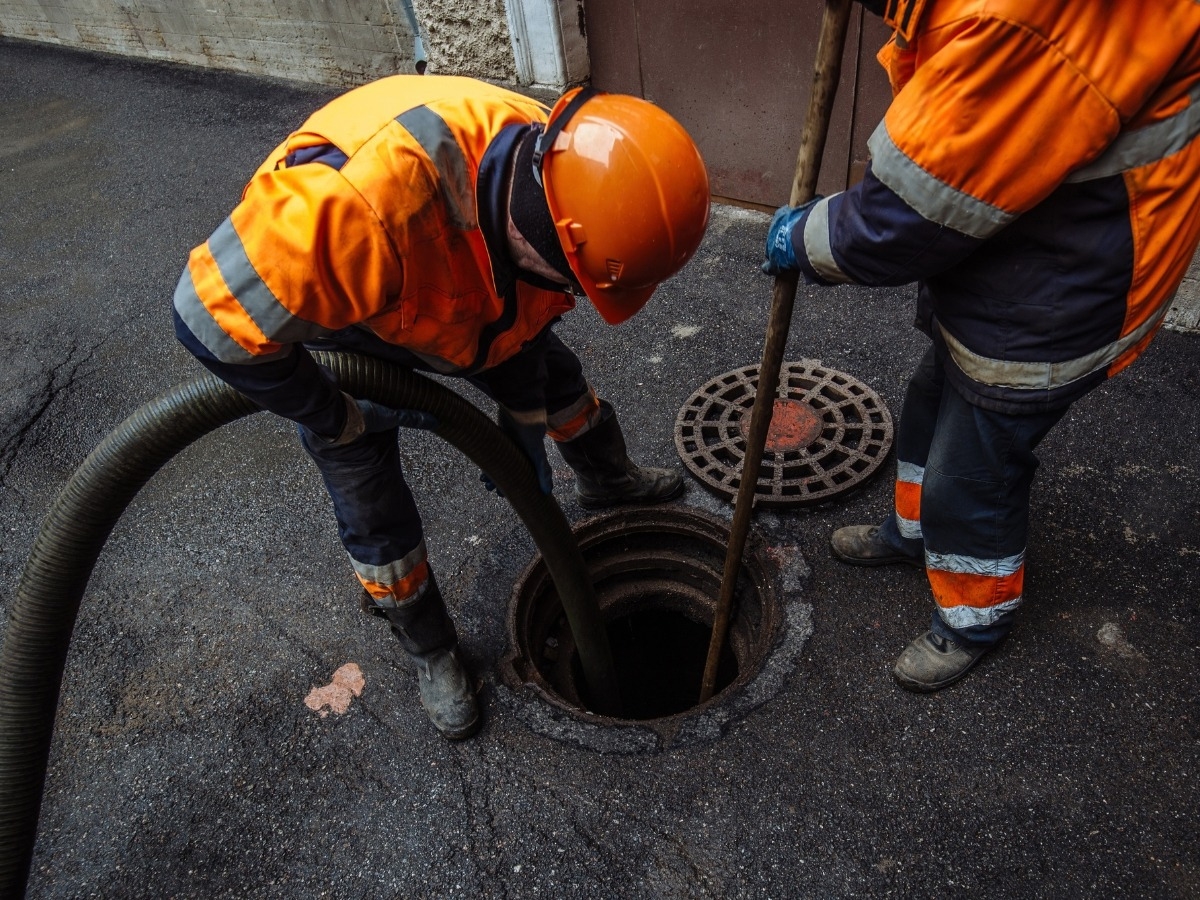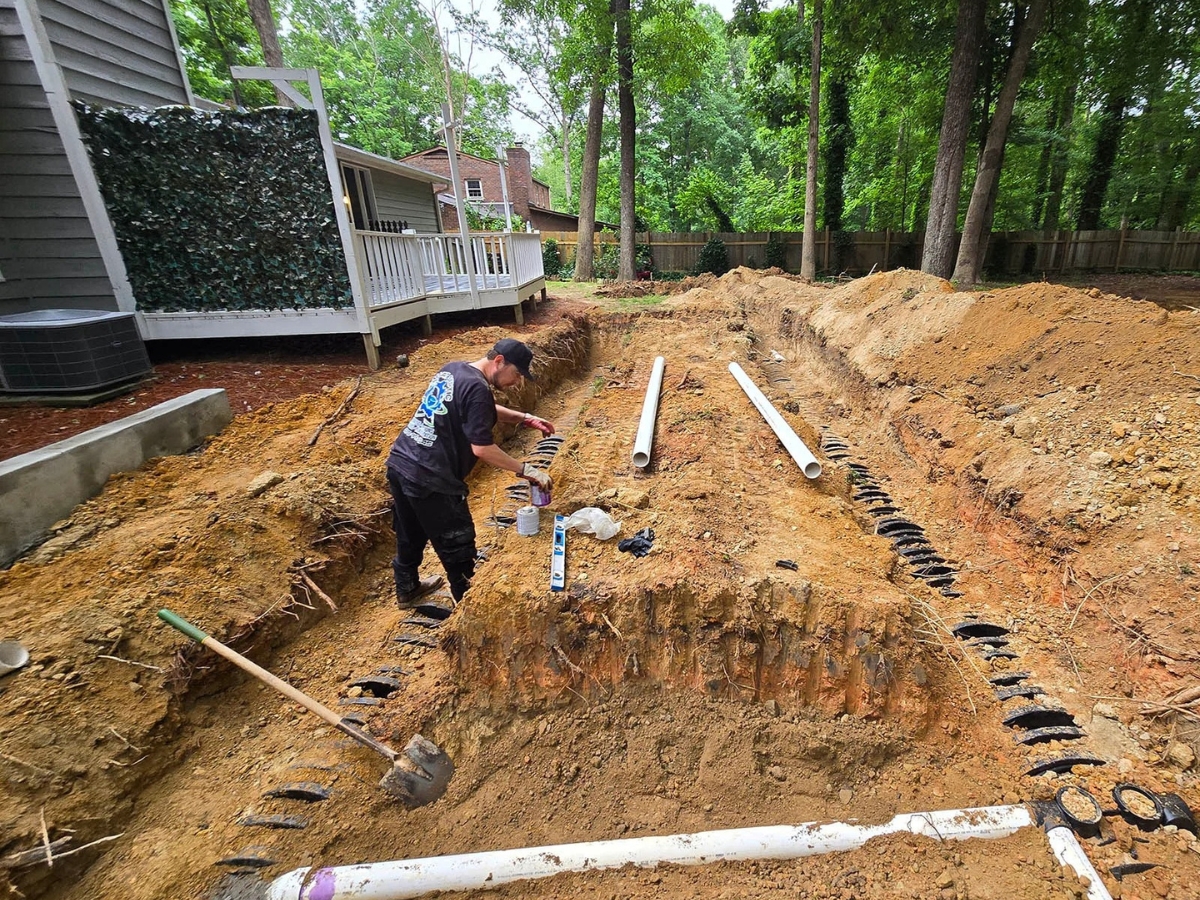For homeowners in Acworth, GA, regular septic tank cleaning is a crucial part of maintaining a safe and efficient wastewater system. Over time, solid waste builds up in the tank, which can lead to unpleasant odors, slow drains, backups, and even costly system failures if left unchecked. Routine cleaning not only helps prevent these issues but also extends the lifespan of your septic system and protects your property’s value. In this guide, we’ll explore why regular septic tank cleaning is essential in Acworth and how it can save you time, money, and headaches in the long run.
Don’t Wait for a Backup! Schedule Septic Tank Cleaning Today
Understanding Your Acworth Septic System’s Need for Cleaning
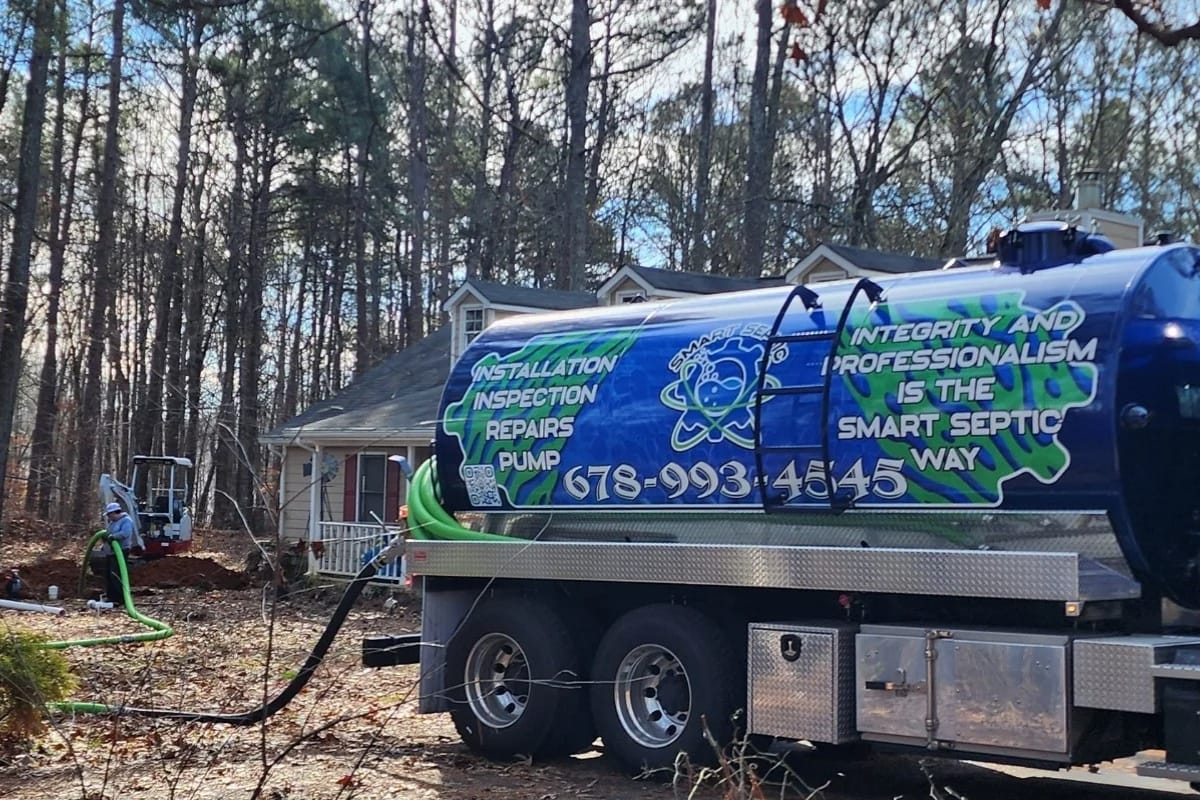
For homes in Acworth that rely on septic systems, routine cleaning is essential to keep things running smoothly. Septic systems are designed to handle wastewater from daily activities like bathing, cooking, and laundry. They work by separating waste into three layers: solids (sludge) at the bottom, oils and grease (scum) at the top, and relatively clear water in between. That water eventually flows into a drain field for further treatment.
Over time, however, solids and scum build up inside the tank. If these layers aren’t removed through regular pumping, the system’s capacity is reduced. Once a tank becomes too full, solid waste can overflow into the drain field, leading to clogs, groundwater contamination, or even complete system failure. In those cases, cleaning alone may not be enough, and more involved repairs may be needed.
How Septic Systems Function in Acworth Residences
In Acworth, septic systems operate much like those in other parts of Georgia but face unique local conditions that affect performance. Wastewater from your home enters the tank, where heavier solids settle at the bottom and lighter materials float. Bacteria inside the tank help break down some of the waste, but not everything can be digested. The liquid portion, or effluent, then flows into a drain field where it is further filtered through soil.
The effectiveness of this process depends on several factors, including the type of soil on your property. Much of the soil in Acworth contains clay, which can slow down drainage and make systems more sensitive to overload or lack of maintenance. In these conditions, regular septic tank pumping becomes even more important to prevent the system from backing up or damaging the drain field.
The Role of Septic Tank Pumping in System Health
Pumping the tank removes accumulated sludge and scum, keeping the system from becoming overloaded. Most households in Acworth should plan to have their tanks pumped every three to five years. However, the right frequency depends on household size, water usage, and the size of the tank.
Skipping this important step can lead to costly problems. Overflow, unpleasant odors, soggy ground around the drain field, or slow drains inside the home are all signs that the system may be overdue for maintenance. Staying ahead of these issues with a routine pumping schedule helps avoid emergencies and expensive repairs.
Common Misconceptions About Septic Tank Care in Georgia
A common misconception among homeowners is that septic systems are low-maintenance and only need attention when something goes wrong. Some people also believe that septic additives or enzymes can replace regular pumping. While additives may support bacterial activity, they don’t remove sludge or scum, which continue to build up.
Relying solely on additives is not enough. Without physical removal of waste, even a well-functioning system will eventually clog. By the time you notice bad smells, backed-up plumbing, or wet spots in the yard, the problem has likely become serious—and costly.
Local Acworth Environmental Factors Affecting Septic Needs
Acworth’s climate plays a role in how septic systems perform. Periods of heavy rain can oversaturate the ground, putting extra stress on the drain field. Saturated soil can’t absorb effluent as efficiently, which increases the risk of backups. Seasonal temperature changes also influence bacterial activity in the tank, and periods of heavy water use—such as holidays or gatherings—can overwhelm the system temporarily.
Additionally, the region’s clay-heavy soil slows water absorption, requiring more attention to proper system sizing and maintenance. Local building codes and environmental regulations also call for regular septic inspections and pumping to protect groundwater and surrounding ecosystems.
Recognizing Signs Your Acworth Septic Tank Requires Pumping

Staying on top of septic system maintenance starts with knowing the warning signs. When a septic tank begins to fill up or malfunction, it often gives clear clues. Ignoring these signs can lead to system failure, costly repairs, and potential health risks. For homeowners in Acworth, recognizing problems early can help keep everything working as it should.
Slow Drains Throughout Your Acworth House
One of the first signs that a septic tank may need pumping is when drains in the house start to slow down. If sinks, bathtubs, and toilets all seem sluggish, it’s likely not just a clog in one pipe. Instead, it can be a sign that the septic tank is reaching capacity. When too much sludge builds up, it reduces the available space for wastewater. As a result, water flows out of the house more slowly and may not move through the system as efficiently. If you’re noticing this across multiple fixtures, it’s worth investigating before it turns into a bigger issue.
Unpleasant Odors Near the Tank or Drain Field
Foul odors are another common sign that your septic tank might need attention. If you smell a strong, persistent odor near the tank or drain field, it’s likely caused by gases like hydrogen sulfide, which are produced as waste breaks down. These gases should stay contained within the system. If they’re noticeable above ground, it means the tank could be full or the system might be leaking. Bad smells that stick around usually indicate the system isn’t processing waste properly and needs to be pumped or repaired.
Pooling Water or Lush Green Grass Over the Septic Area
Unexplained patches of standing water or suddenly greener grass near the septic system are red flags. When a tank is too full, liquid waste can rise to the surface or leak out into the yard. You might see soggy spots or areas of rapid grass growth directly over the tank or drain field. While healthy grass might seem like a good thing, in this context, it usually points to wastewater seeping out and fertilizing the lawn. This kind of issue suggests the drain field is struggling to keep up, and the system likely needs to be pumped soon to prevent further stress or damage.
Sewage Backups in Acworth Home Plumbing
Few problems are as obvious—or serious—as sewage backing up into your home. If wastewater begins to come up through toilets, drains, or tubs, the system is likely blocked or completely full. This situation poses immediate health concerns due to bacteria and contaminants. It’s also an indication that the septic tank may not have been pumped on schedule. Backups are not just unpleasant; they can also damage flooring and walls, making repairs even more expensive. Once sewage appears inside, urgent service is required.
Gurgling Sounds From Pipes or Toilets
Gurgling noises in your plumbing may not seem like a big deal at first, but they can signal that air is trapped in the system due to a blockage or a full septic tank. These sounds often start off quietly and become louder over time. If you flush a toilet or run water and consistently hear bubbling or gurgling, it could mean the system is having trouble processing waste properly. Catching this sign early gives you time to schedule pumping or inspection before bigger problems arise.
The Process of Professional Septic Tank Cleaning in Acworth

Professional septic tank cleaning in Acworth is a structured process that helps keep household wastewater systems running properly. For homeowners, knowing what happens during a cleaning service can take the guesswork out of maintenance and help you understand what your system needs to stay in good shape.
Initial Inspection of Your Acworth Septic System
The process begins with a thorough inspection of your septic system. A trained technician checks the tank’s scum and sludge levels to determine how full it is and whether pumping is necessary. They’ll also look over the drain field, check for leaks, and examine the tank itself for signs of damage or wear. This inspection often includes measuring how much of the tank’s volume is taken up by solids. If the solids take up too much space, the system can’t work effectively, which is why pumping is usually recommended at this stage. Spotting early signs of problems—like cracks, pooling water, or odors—can prevent more serious issues later on.
Safe and Efficient Sludge and Scum Removal
Once the inspection is complete, technicians begin the cleaning process. Using a vacuum truck designed for septic work, they remove the accumulated sludge and scum from the tank. This step is sometimes referred to as septic tank pumping, but the goal is the same: to clear out solid waste that has settled over time. Care is taken not to disturb the healthy bacteria that help break down waste in the tank. Removing too much liquid or aggressively stirring the tank can upset this balance, so experienced professionals use specific techniques to keep the system stable while cleaning thoroughly.
Proper Waste Disposal Following Acworth Regulations
After the waste is pumped from the tank, it’s transported to a certified treatment facility for processing. Septic waste must be handled according to state and local environmental guidelines to prevent contamination of water sources and ensure public safety. In Georgia, there are clear rules on how this material is stored, transported, and treated. Professional services follow these guidelines closely, making sure that disposal methods meet all regulatory requirements.
Post-Cleaning System Check and Recommendations
Once cleaning is finished, a follow-up check is done to make sure everything is working as it should. This includes another look at the tank, the inlet and outlet pipes, and the baffles that keep solids from entering the drain field. Technicians will let you know if they spot any early warning signs of trouble, like worn-out parts or minor blockages.
They might also recommend a regular pumping schedule based on your household’s size and water usage. Having this information helps you plan ahead and avoid emergency calls or unexpected repairs. You’ll typically receive documentation that details what was removed, the condition of the tank, and any service recommendations. This record is useful for future maintenance and can be helpful if you ever sell your home.
What to Anticipate During an Acworth Septic Pumping Service
Most professional septic cleaning appointments take two to four hours. The technician will explain the process beforehand and answer any questions you might have about your specific system. Depending on what they find, they may suggest additional steps such as minor repairs or earlier follow-up cleanings. While the process may seem routine, it plays a key role in preventing backups, protecting your drain field, and extending the life of your septic system. Regular cleaning keeps your system running efficiently and helps you avoid larger problems down the road.
Benefits of Consistent Septic TankMaintenance in Acworth
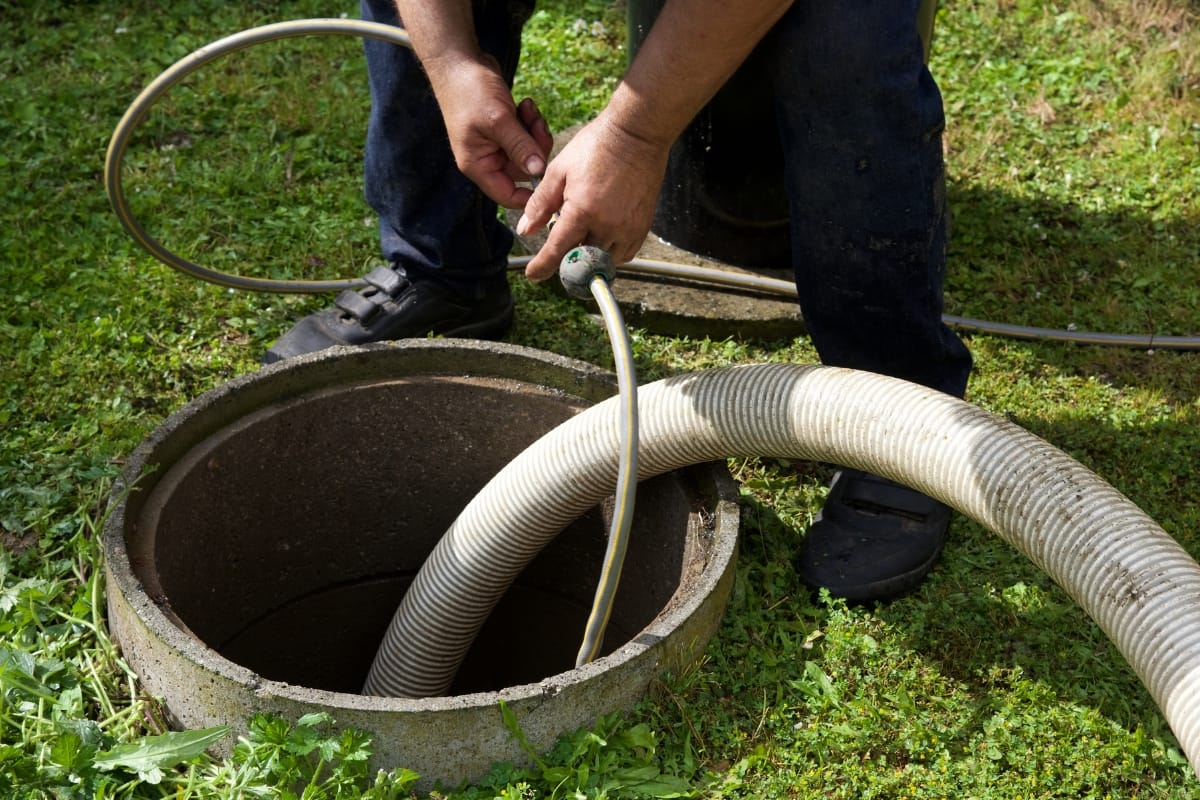
For homeowners in Acworth, regular septic system maintenance is a key part of responsible property care. It keeps wastewater systems operating efficiently, helps avoid major repairs, and protects both personal health and the surrounding environment. Skipping routine upkeep might save time in the short term, but it often leads to costly issues down the line. Staying on top of maintenance offers several long-term benefits.
Averting Costly Septic System Repairs in Acworth
One of the biggest advantages of routine septic maintenance is avoiding unexpected repair bills. Regular pumping and cleaning reduce the strain on key components such as the tank, pipes, and drain field. When waste builds up too much, it can clog the system or overflow, leading to damage that’s both messy and expensive to fix. By sticking to a consistent schedule—typically every three to five years depending on household size and water usage—homeowners can catch small issues before they become major problems. Cracks in the tank, signs of drain field failure, or slow drainage can often be resolved early if a technician spots them during a routine inspection.
Prolonging the Lifespan of Your Acworth Septic Installation
A well-maintained septic system can last for several decades. On the other hand, neglecting regular pumping and inspections can cause damage that shortens the system’s lifespan significantly. When solids are left to accumulate, they can overflow into the drain field, clog pipes, and cause irreversible damage that may require full replacement. Routine service helps prevent these issues and keeps the system running as it was designed to. For homeowners looking to stay in their homes long-term—or pass the property on to future generations—this kind of care pays off in added years of reliable service.
Safeguarding Acworth’s Local Water Quality
A septic system that isn’t maintained properly can leak untreated wastewater into the ground. In Acworth, where properties may rely on private wells or be near natural waterways, this kind of leakage can contaminate local groundwater with harmful bacteria, nitrates, and other pollutants. Keeping your system clean helps protect the health of your household and your community. Routine maintenance reduces the risk of environmental damage, keeps water sources safe, and helps meet any applicable health or environmental codes in the area. It’s not just a personal responsibility—it’s a public one too.
Preserving Property Value in the Acworth Area
For homeowners planning to sell in the future, documented septic maintenance can be a strong selling point. Buyers are more likely to consider a home where the septic system has been properly cared for and where maintenance records are available. It signals that the home has been well-maintained overall and reduces concerns about potential hidden costs. In contrast, if a buyer suspects that the septic system hasn’t been serviced regularly, it can delay the sale or lower the offer. Inspections during the home-selling process often include septic evaluations, so it’s best to keep the system in top condition ahead of time.
Assuring Healthy Living Conditions for Your Household
A failing septic system doesn’t just affect plumbing—it also affects household safety. When a system backs up or leaks, it can expose residents to untreated wastewater. This can lead to unpleasant odors, bacteria exposure, and even contaminated drinking water in extreme cases. Keeping the system well-maintained means you’re protecting your family from these risks. Regular pumping, inspections, and occasional repairs all work together to ensure wastewater is managed safely and efficiently. This not only improves the function of your home but also gives peace of mind that you won’t be dealing with unexpected health hazards.
Dangers of Neglecting Septic Tank Cleaning for Acworth Properties
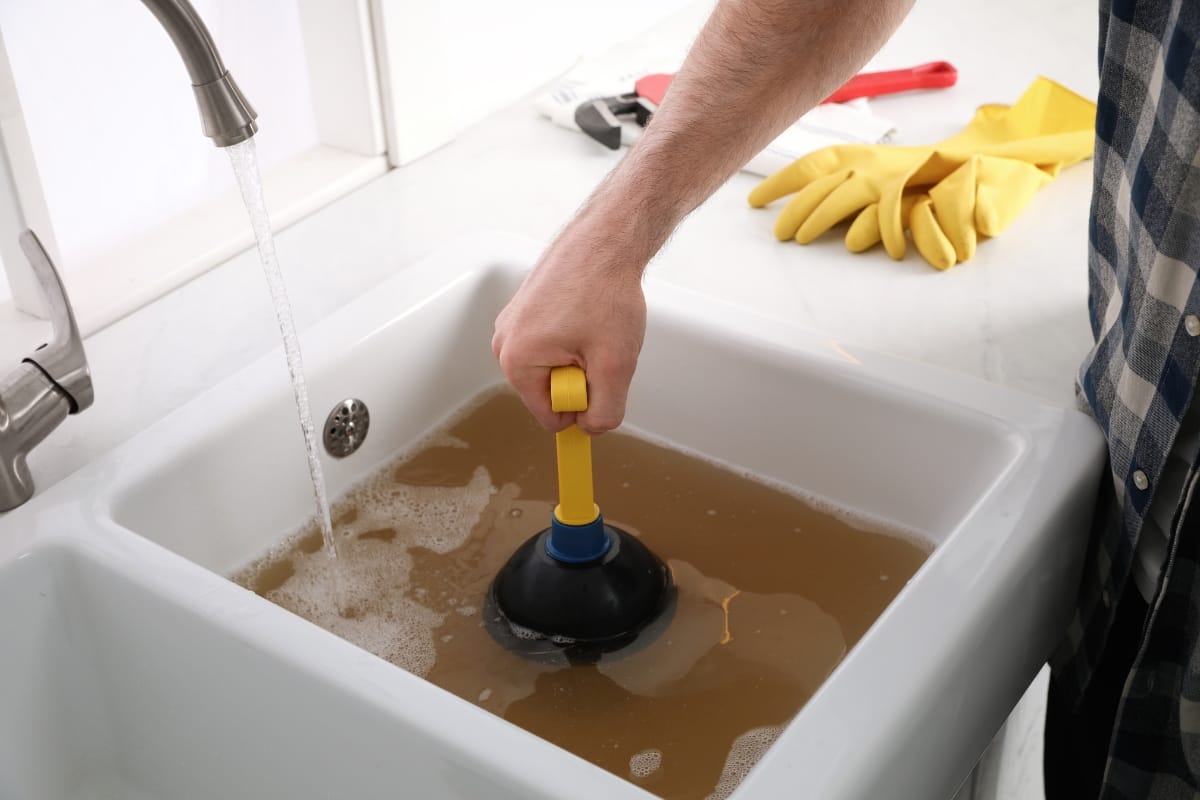
Overlooking septic tank maintenance can cause serious and expensive problems for homeowners in Acworth. Septic systems are built to handle waste efficiently, but they rely on regular pumping and inspections to stay functional. Without this upkeep, systems can break down, affecting not only your property but also the environment and public health.
Irreversible Damage to Your Septic Drain Field
The drain field plays a critical role in your septic system by filtering treated wastewater into the soil. When a tank becomes too full, solid waste can flow into the drain field, clogging the soil and making it harder for water to drain. Once this happens, the damage is often permanent. A clogged drain field can no longer process wastewater properly, leading to puddling in the yard, foul odors, and even sewage backups into the home. Repairing or replacing a failed drain field is a major expense and often requires digging up large portions of the yard. Routine septic tank pumping is the best way to prevent this kind of failure and keep the drain field working as it should.
Contamination Risks to Acworth Soil and Groundwater
When a septic system overflows or leaks due to lack of maintenance, untreated wastewater can seep into the surrounding soil. This can introduce harmful bacteria, viruses, and chemical contaminants into groundwater supplies. In Acworth, where many homes rely on private wells or live near sensitive waterways, this is especially concerning. Contaminated groundwater can pose a risk to nearby homes, wildlife, and even local agriculture. It also creates long-term problems that are difficult and costly to correct. Proper care of your septic system helps prevent environmental damage and keeps local water sources safe.
Expensive Emergency Septic Service Calls in Acworth
Routine maintenance is far less expensive than dealing with an emergency septic issue. When a system fails unexpectedly, homeowners often face steep fees for emergency pumping, repairs, or even full replacements. These situations may also involve health inspections, environmental testing, and permits, which add to the overall cost. Aside from the financial impact, dealing with a failed septic system is disruptive. It can render parts of your home unusable for days or weeks and may require relocating during repairs. Regular inspections and cleaning can prevent these emergencies and help you avoid unnecessary costs.
Potential Health Hazards From Untreated Wastewater
Untreated wastewater contains harmful pathogens that can cause illnesses, especially for young children, the elderly, or those with compromised immune systems. When septic systems back up or leak, they can expose household members to bacteria like E. coli, viruses, and parasites. Even limited exposure can lead to gastrointestinal problems, skin irritation, or respiratory infections. In some cases, sewage exposure may affect indoor air quality as gases like methane and hydrogen sulfide seep into the home. Keeping your septic system maintained helps reduce these health risks and ensures your home remains a safe place for your family.
Legal Compliance Issues for Acworth Homeowners
Failing to maintain a septic system can also lead to legal trouble. Many counties, including those in Georgia, have rules in place requiring regular septic inspections and proper waste disposal. If a system fails and causes environmental contamination, homeowners can face fines, enforcement actions, or mandatory system upgrades. These legal issues not only increase the cost of repairs but also create long-term complications with insurance, property value, and home resale. Staying in compliance with local regulations protects you legally and shows responsibility as a homeowner.
Determining the Right Septic Tank Cleaning Frequency for Your Acworth Home
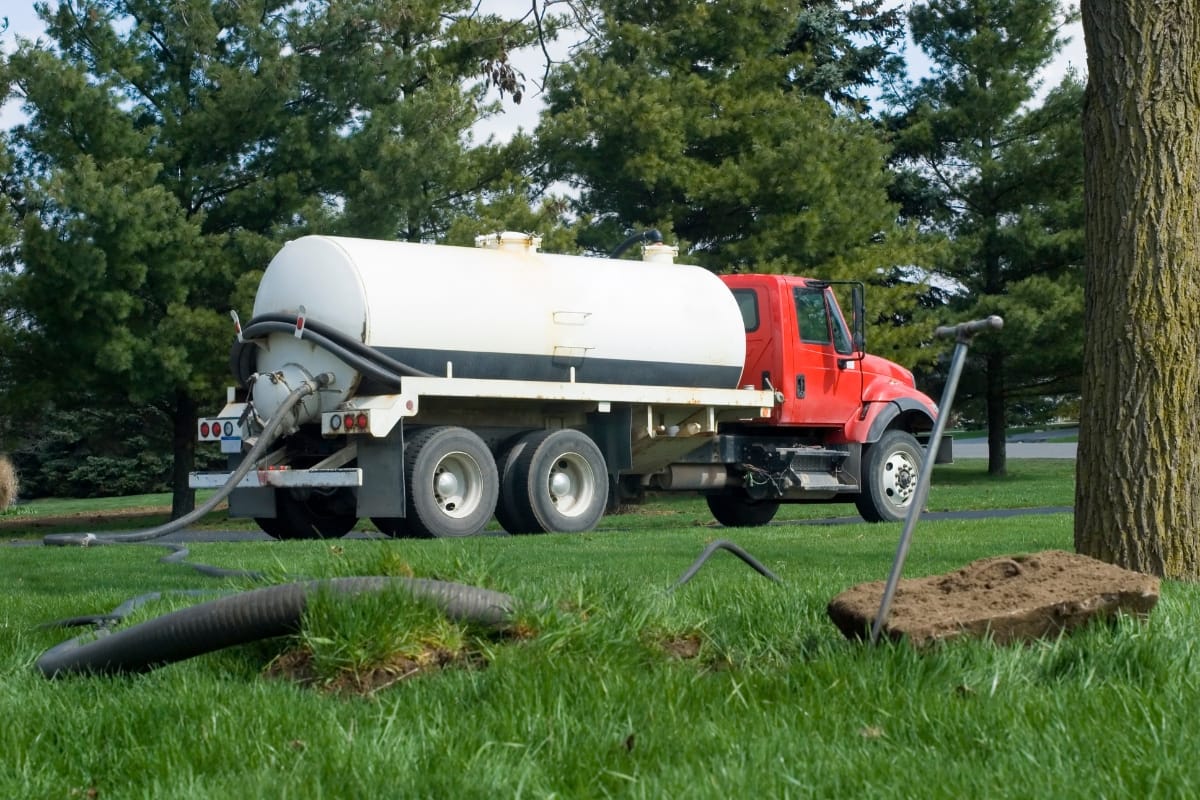
Figuring out how often to clean your septic tank isn’t always straightforward. Several factors influence the ideal maintenance schedule, including tank size, household water usage, and the condition of the surrounding environment. Knowing how these elements interact can help Acworth homeowners maintain their systems effectively and avoid costly problems down the line.
Factors Influencing Your Acworth Pumping Schedule
The most important variable in any septic maintenance schedule is how much wastewater your system has to handle. This depends on the number of people living in the home, how much water is used daily, and the size of the septic tank itself. Larger tanks can hold more waste and may not need to be cleaned as frequently, but they’re not immune to buildup. If a household uses more water than the tank was designed for, it will still fill up quickly. Soil type also plays a role. Some parts of Acworth have dense clay soils that slow down drainage in the septic drain field. If your home is in one of these areas, your system may need closer monitoring to avoid backups or saturation.
Household Size and Water Usage Impact on Cleaning Needs
More people in a home means more water gets used. Showers, laundry, dishwashers, and frequent toilet flushing all contribute to how quickly a tank fills. A family of five, for example, may need to have their system pumped every two to three years. Smaller households with lower water use might only need service every four to five years.
Appliance use is another factor. If your home has multiple bathrooms, runs large laundry loads regularly, or includes a garbage disposal, it’s likely generating more waste than average. That means you’ll need to clean the tank more often to keep everything functioning as it should.
Septic Tank Size and Its Effect on Pumping Intervals
While a larger tank gives you more capacity and slightly longer intervals between cleanings, it’s not a set-it-and-forget-it solution. Every septic system, regardless of size, will eventually accumulate solids that need to be removed. A good rule of thumb is to know the size of your tank and pair that with your household’s water habits to determine how quickly it fills. If you’re unsure of your tank’s size or when it was last serviced, a professional inspection can help you get an accurate starting point for planning future maintenance.
General Recommendations for Acworth Septic Maintenance Intervals
Most septic systems in the Acworth area fall into the three-to-five-year range for pumping. This is a general recommendation that works for average household sizes and water usage levels. Homes with fewer residents or very conservative water use might stretch that out a bit longer, while larger households or properties with high output should stick to more frequent cleanings. These guidelines help prevent solids from entering the drain field, which can cause irreversible damage and require costly repairs.
Maintaining Records of Your Acworth Septic Service History
Keeping a log of when your septic tank was last pumped, how much waste was removed, and any notes from technicians can help you stay on schedule. This information is also helpful when selling your home, as buyers and inspectors often want proof of routine maintenance. Records can also reveal patterns in your system’s behavior. For instance, if you notice the tank is filling faster over time, it could indicate a leak, a failing drain field, or changes in household water use.
Selecting a Qualified Septic Tank Cleaning Service in Acworth, GA
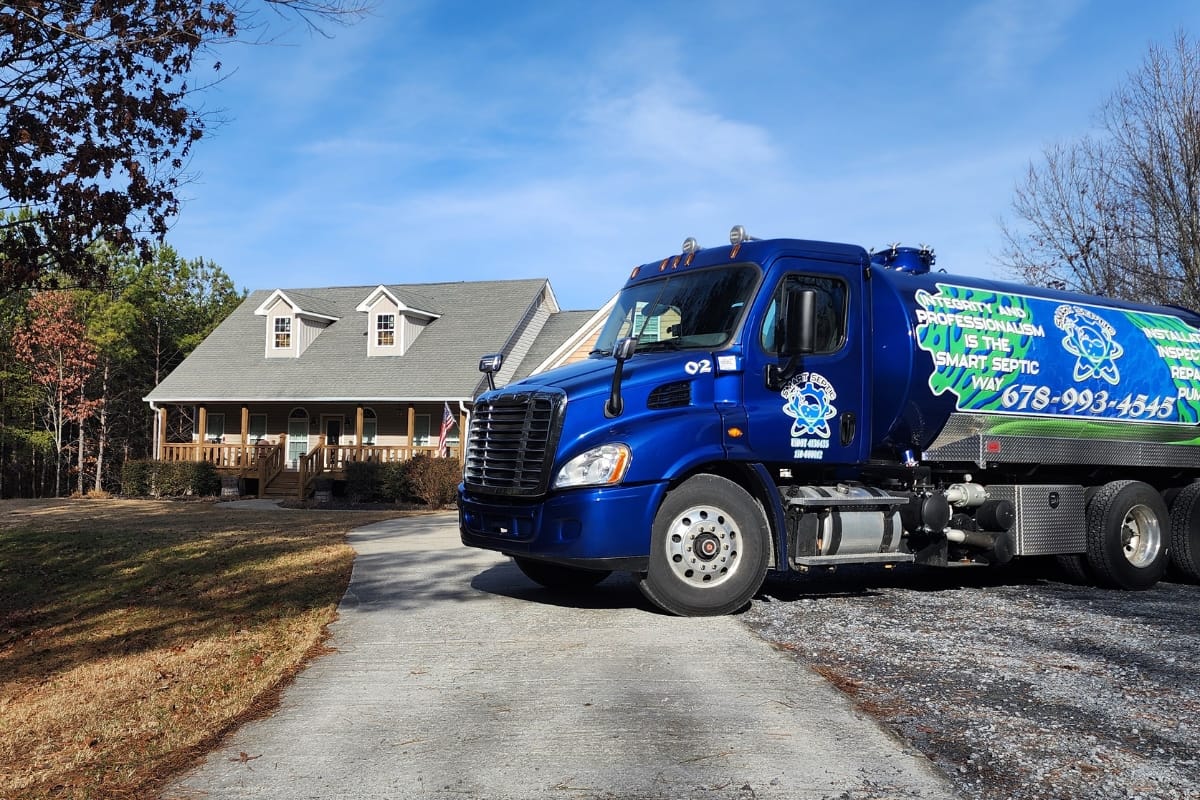
Hiring the right septic tank cleaning service is an important step in keeping your wastewater system working properly. A well-maintained system prevents backups, protects your property, and extends the life of your septic tank and drain field. With many companies offering similar services, it’s important to evaluate each provider carefully. The key is to focus on licensing, experience, customer feedback, and the scope of services provided.
Verifying Licensing and Insurance for Acworth Providers
Before allowing anyone to service your septic system, confirm that the company is licensed to operate in Georgia. Septic tank cleaning involves handling waste materials, and technicians must be trained and certified to meet state and local standards. Proper licensing ensures the company follows regulations and has the knowledge to perform safe and effective work.
Insurance is equally important. Septic cleaning often involves heavy equipment, digging, and access to private property. If something goes wrong, liability insurance protects you from being financially responsible for accidents or property damage during service. Don’t hesitate to ask for proof of both licensing and insurance before hiring.
Checking Acworth Customer Reviews and Testimonials
Online reviews are one of the best ways to learn about a company’s reliability. Sites like Google, Yelp, and Better Business Bureau can give you a good idea of what to expect. Look for comments on punctuality, professionalism, pricing transparency, and the overall quality of work. If possible, get recommendations from neighbors or local homeowners. Word of mouth is often more reliable than advertisements, especially when it comes to long-term service providers. Positive feedback from people in your area can help you narrow down your options.
Understanding Service Scope and Pricing for Septic Cleaning in Acworth
Septic cleaning involves more than just pumping out the tank. A qualified provider should inspect the tank for signs of damage, check the sludge and scum levels, and look for any issues with the drain field. They should also explain what was done and provide recommendations for follow-up maintenance.
Make sure the company offers a written estimate with a breakdown of services included. This should cover inspection, pumping, waste disposal, and any additional fees that might apply. Avoid providers who give vague pricing or refuse to provide a detailed explanation of their services.
Inquiring About Experience With Various Acworth Septic Systems
Acworth has a variety of soil types, and certain areas experience higher groundwater levels or more frequent rain. These factors affect how a septic system performs and how often it needs attention. It’s a good idea to work with a company that has experience servicing systems in the local area.
Ask if the provider has worked with your type of system before, whether it’s a traditional gravity-fed tank, an alternative design, or an older installation. Experience with different systems and site conditions makes it easier to diagnose issues and provide effective service.
Requesting Local Acworth References for Septic Services
When narrowing down your list, don’t hesitate to ask for references from past customers in Acworth. A reputable company should be able to provide a few contacts willing to speak about their experience. These conversations can offer insights into how the provider handles service calls, resolves problems, and communicates with customers. Hearing from people who have used the company for several years can also give you confidence in their reliability and consistency.
Frequently Asked Questions
Q: How often should I pump my septic tank in Acworth, GA? A: Most septic tanks in Acworth should be pumped every three to five years, though this varies with household size, water usage, and tank capacity.
Q: What are the warning signs that my septic tank needs cleaning? A: Warning signs include slow drains, unpleasant odors, pooling water, sewage backups, and gurgling sounds from pipes, indicating the system is overloaded.
Q: Why is it important to use a licensed and insured septic service? A: Licensed and insured services ensure safety protocols are followed and protect you from liability, while also meeting local regulatory requirements.
Q: Can neglecting septic tank maintenanceaffect my property value? A: Yes, neglect can lead to costly repairs and environmental issues that reduce property value, while regular maintenance preserves efficiency and safety.
Q: How does regular septic maintenance benefit local water quality in Acworth? A: Consistent maintenance prevents untreated wastewater from contaminating the ground, reducing groundwater pollution and protecting public health.
Q: What should I look for when selecting a septic cleaning service in Acworth? A: Look for proper licensing, insurance, positive customer reviews, a detailed service scope, proven local experience, and available references.
Q: What happens during a typical septic pumping service? A: A technician inspects the system, removes accumulated sludge and scum using specialized equipment, disposes of the waste according to regulations, and conducts a post-cleaning check while providing maintenance recommendations.
Final Thoughts
Regular septic tank cleaning is the cornerstone of a trouble-free system, preventing backups, costly repairs, and environmental hazards in your Acworth home. By scheduling routine maintenance, you’ll keep your tank operating at peak efficiency and extend its lifespan. For dependable service you can trust, choose Smart Septic Pros—your local experts in septic care services. Call us today at 678-993-4545 or visit our website to request one of our services and book your next cleaning, so you can enjoy peace of mind all year long.


